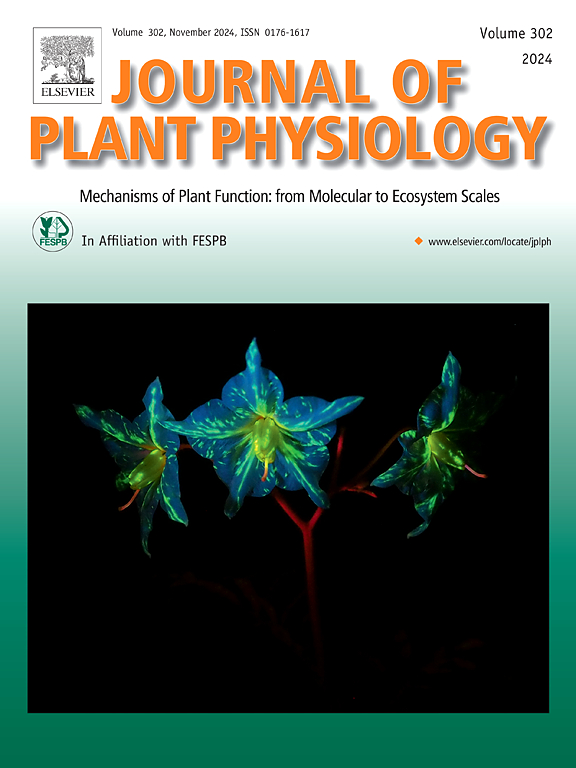Salicylic acid cooperates with different small molecules to control biotic and abiotic stress responses
IF 4
3区 生物学
Q1 PLANT SCIENCES
引用次数: 0
Abstract
Salicylic acid (SA) is a phytohormone that plays a critical role in plant growth, development, and response to unfavorable conditions. Over the past three decades, researches on SA have deeply elucidated the mechanism of its function in plants tolerance to infection by biotrophic and hemibiotrophic pathogens. Recent studies have found that SA also plays an important role in regulating plants response to abiotic stress. It is emerging as a strong tool for alleviating adverse effects of biotic and abiotic stresses in crop plants. During SA-mediated stress responses, many small molecules participate in the SA modification or signaling, which play important regulatory roles. The cooperations of small molecules in SA pathway remain least discussed, especially in terms of SA-induced abiotic stress tolerance. This review provides an overview of the recent studies about SA and its relationship with different small molecules and highlights the critical functions of small molecules in SA-mediated plant stress responses.
水杨酸与不同的小分子协同作用,控制生物和非生物的应激反应。
水杨酸(Salicylic acid, SA)是一种植物激素,在植物生长发育和对不利条件的反应中起着关键作用。近三十年来,对SA的研究深入阐明了其在植物抗生物营养和半生物营养病原菌侵染中的作用机制。近年来的研究发现,SA在调节植物对非生物胁迫的反应中也起着重要作用。它正在成为减轻作物植物中生物和非生物胁迫的不利影响的有力工具。在SA介导的应激反应中,许多小分子参与了SA的修饰或信号传导,发挥着重要的调控作用。关于SA途径中小分子的协同作用,特别是SA诱导的非生物胁迫耐受性方面的讨论仍然很少。本文综述了近年来关于SA及其与不同小分子之间关系的研究进展,并着重介绍了小分子在SA介导的植物胁迫应答中的重要作用。
本文章由计算机程序翻译,如有差异,请以英文原文为准。
求助全文
约1分钟内获得全文
求助全文
来源期刊

Journal of plant physiology
生物-植物科学
CiteScore
7.20
自引率
4.70%
发文量
196
审稿时长
32 days
期刊介绍:
The Journal of Plant Physiology is a broad-spectrum journal that welcomes high-quality submissions in all major areas of plant physiology, including plant biochemistry, functional biotechnology, computational and synthetic plant biology, growth and development, photosynthesis and respiration, transport and translocation, plant-microbe interactions, biotic and abiotic stress. Studies are welcome at all levels of integration ranging from molecules and cells to organisms and their environments and are expected to use state-of-the-art methodologies. Pure gene expression studies are not within the focus of our journal. To be considered for publication, papers must significantly contribute to the mechanistic understanding of physiological processes, and not be merely descriptive, or confirmatory of previous results. We encourage the submission of papers that explore the physiology of non-model as well as accepted model species and those that bridge basic and applied research. For instance, studies on agricultural plants that show new physiological mechanisms to improve agricultural efficiency are welcome. Studies performed under uncontrolled situations (e.g. field conditions) not providing mechanistic insight will not be considered for publication.
The Journal of Plant Physiology publishes several types of articles: Original Research Articles, Reviews, Perspectives Articles, and Short Communications. Reviews and Perspectives will be solicited by the Editors; unsolicited reviews are also welcome but only from authors with a strong track record in the field of the review. Original research papers comprise the majority of published contributions.
 求助内容:
求助内容: 应助结果提醒方式:
应助结果提醒方式:


